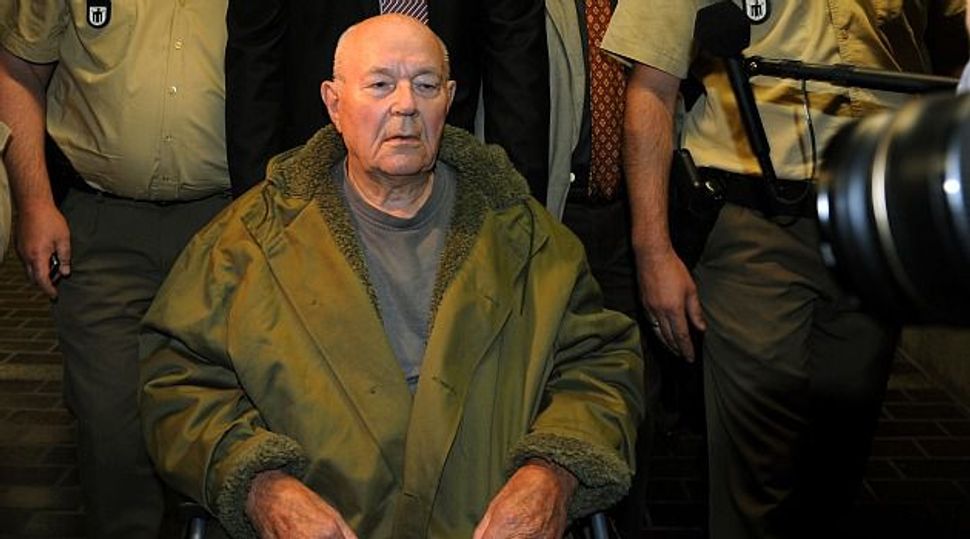Nazi-Hunters Made Demjanjuk Infamous

Worst of Worst? John Demjanjuk was convicted as a mass killer at Nazi death camps. Some supporters called him a small fry or a scapegoat for superiors. Image by getty images
John Demjanjuk, who died on Saturday morning at a nursing home in southern Germany, would have died in a nursing home in Ohio if it had not been for small, dogged groups of attorneys in the justice departments of Israel, the United States and Germany. These lawyers took away Demjanjuk’s last three decades, forcing the former auto-factory worker to fight two extradition battles and two war-crime trials, instead of enjoying his retirement.
The Treblinka survivors who identified him as “Ivan the Terrible,” who operated the diesel engines of the death camp’s gas chamber and in his spare time tormented prisoners, continued to believe Demjanjuk was “Ivan” even after Israel’s Supreme Court overturned his conviction in 1993 and the death sentence that went with it.
Read the Forward’s story about the ongoing belief in the Ukrainian-American community that Demjanjuk was innocent.
A Munich court last year sentenced Demjanjuk to five years in prison after convicting him as an accessory to the murder of 27,900 Jews in the Sobibor camp, during the period he was supposedly a guard there.
Some researchers and journalists are still convinced that the evidence upon which he was convicted was flimsy and possibly concocted by the KGB. But even if he was Ivan the Terrible, or some other terrible death camp guard, the Ukrainian conscript was at the lowest rung of the extermination machine. There were thousands, if not tens of thousands, of murderers and torturers like him, at least hundreds of whom are still alive.
Was it worth the untold resources spent on Demjanjuk’s prosecution? After Adolf Eichmann’s capture, in 1960, the State of Israel ended its efforts to find Nazi war criminals and bring them to justice. The Mossad agents who were sent all the way to Argentina to abduct Eichmann were needed for more immediate missions, closer to home. Despite the fact that many senior Nazis were still free, the hunt was called off.
For more, go to Haaretz.com













